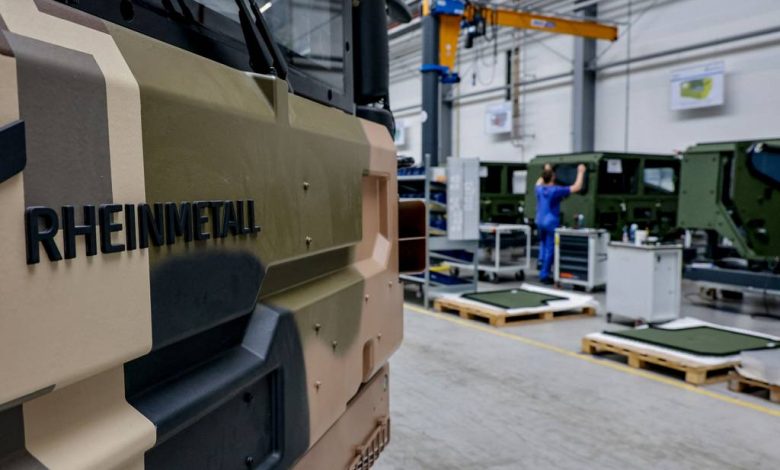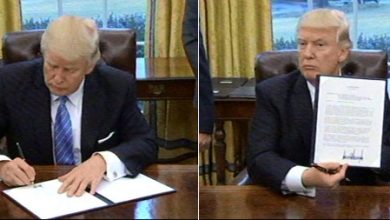Rheinmetall to buy South African engineering firm to meet ammo demand

PARIS – Germany’s Rheinmetall is boosting its plant-engineering business to meet growing demand for ammunition factories, with an agreement to buy a majority stake in the South African engineering firm Resonant Holdings for an undisclosed price.
Rheinmetall will own 51% of a new joint venture, with current Resonant shareholders holding the remainder, the defense company said in a statement late Friday. Resonant employs around 150 people and will add expertise in building chemical and explosives plants, with annual sales potential for the new company of more than €100 million (U.S. $109 million), Rheinmetall said.
The war in Ukraine prompted a realization among NATO members, including Germany and the U.K., that decades of defense cuts had left them unprepared for high-intensity war. That has resulted in a scramble to rebuild depleted ammo stocks, with governments ordering billions of dollars in shells from Rheinmetall, BAE Systems and others, and hundreds of millions of investment in production capacity for shells and powder.
“The planned acquisition is Rheinmetall’s response to the growing global demand in the ammunition sector and the resulting customer requirements for the construction of corresponding production facilities,” the company said. “Rheinmetall is therefore significantly expanding its existing capabilities in ammunition production by vertically integrating further competence.”
Rheinmetall said Resonant’s expertise complements its own in plant engineering, particularly in chemical, energetic and explosives technology, and the German company says it aims to keep the South African firm’s workforce.
Resonant says its Nuteq division has worked on rocket and satellite fuels, and led the development of South Africa’s first nitration plant capable of producing the explosive materials RDX, PETN and NTO in the same facility.
The acquisition follows Rheinmetall’s purchase of Spanish munitions maker Expal Systems, completed in August last year, for about €1.2 billion, or three times annual sales.
Rheinmetall already operates a South African subsidiary, Rheinmetall Denel Munition, which in December 2022 won a contract from a “long-time NATO customer” for 155mm shells, carrying a value in the hundreds of millions of euros.
Rheinmetall in February announced a €300 million investment to build a new ammo plant in northern Germany with annual capacity for 200,000 artillery shells and 1,900 metric tons of explosives.
That was followed by a framework contract with Germany’s Bundeswehr in June for 155mm artillery ammunition worth as much as €8.5 billion, and a first call-off for the new factory for shells with a gross order value of around €880 million.
The company has said the ammo depots of the Bundeswehr are empty, and replenishing them will cost an estimated €40 billion. Rheinmetall aims to produce 700,000 artillery rounds a year at its plants by 2025, as well as an annual 10,000 tons of explosive powder.
The European Union’s Act in Support of Ammunition Production program in June awarded €500 million in subsidies, including for Rheinmetall projects to boost shell production in Germany, Hungary and Spain, as well as powder production in Spain and Germany.
The U.K. last year ordered £410 million worth of munitions from BAE Systems, with the company saying the contract would support investments including an additional 155mm machining line in the town of Washington, England, as well as a new explosive-filling plant in South Wales.
A parliamentary report published in February noted that ammunition stockpiles were a “significant” concern for the heads of all of the county’s military services.
Other competitors are also benefiting from the surge in ammo demand. Elbit Systems said last week it would establish a manufacturing facility to produce the ammunition for a 10-year contract worth about $340 million with the Israeli Minister of Defense. This followed a $135-million contract in October to build an artillery ammunition factory for an unidentified international customer.
Rudy Ruitenberg is a Europe correspondent for Defense News. He started his career at Bloomberg News and has experience reporting on technology, commodity markets and politics.







